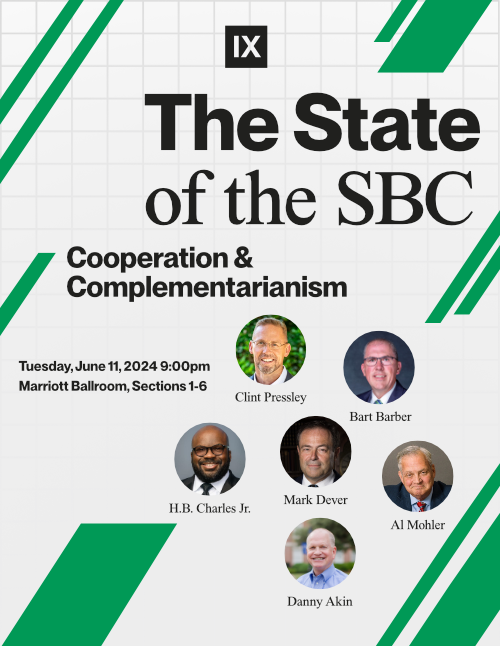What’s Wrong With Search Committees? Part 1 of 2 on Finding a Pastor
Click here for the second of two articles: “What’s Right About Elders? Part 2 of 2 on Finding a Pastor”
Some very godly folks serve today in such committees around the country, and even around the world, giving freely of their time to help their congregation find a new pastor. The decision is a momentous one for the sake of their church, and therefore those on the committee give their time prayerfully and with a sense of a being given a sacred privilege. Thank you to those who have approached this task lovingly and dutifully!
But here’s the problem: if churches were healthier, we’d never need to call together such a committee. The last guy would have helped the elders to make sure that this was taken care of before he left. Indeed, the last guy would have realized that one of the most important parts of his ministry in a church is ushering in his replacement! Failing that, the elders of a church still should have taken the lead in ushering the church toward choosing a man who meets the biblical requirements and deftly handles the Word.
Sadly, too many pastors and elders have failed to discharge this crucial responsibility, and so congregations have been left with no choice but to create a committee. But this is like making the teenage son and daughter parent their younger siblings because mom and dad are absent. The teenagers can get the job done, and how grateful we are for them. But they inevitably do the work with a limp because they lack the natural resources and advantages of the parents.
Let’s consider some dangers and pitfalls that may await the average search committee. Then in the next article we’ll consider why the church’s elders, including the outgoing pastor, are best suited to leading the search for a pastor’s replacement.
THE DANGERS AND PITFALLS OF SEARCH COMMITTEES
1) The basic problem. The basic problem with search committees is that they are typically built to do the wrong thing. They’re built—again, typically, not always—to represent different portions of the congregation in the process of finding a pastor. So you get some women on the committee to represent the women’s perspective, men to represent the men, young and old to represent different ages, the businessman, the deacon, the musicians, and so forth. In other words, search committees are built to put the principle of representation to work. And it makes sense that corporate-minded, democratic Westerners would think this way, doesn’t it!
There’s nothing wrong with incorporating the interests of different kinds of people, but let’s not put the cart before the horse. The most important criteria which the people responsible for nominating the next pastor should meet is an ability to represent not the interests of different kinds of people but the “interests” of the Bible, if I can put it like that. This group needs to understand the Scripture well—how to “rightly handle the word of truth” (2 Tim. 2:15)—so that they will prioritize what Scripture prioritizes in looking for a pastor. Yes, these individuals should be interested in finding someone who knows how to love and serve men and women, young and old, and every other group in the church, just as Paul instructs Timothy about how to love different kinds of people in the pastorals. But this group must approach their job asking first what Scripture says. And then they should have the pastoral wisdom and experience necessary for differentiating between those candidates who meet the biblical criteria in a two-dimensional or three-dimensional fashion.
Since the committee’s search engine uses the wrong principles, it’s more likely to hobble along, stuck with the following problems that produce a limp:
2) Undue influence from outside denominational leaders. If your church belongs to a denomination where the authority of Scripture is under attack, consider very carefully the interests that denominational leaders have in making sure you get a pastor who’s acceptable to them. They may have unsavory theological or political reasons to want to install certain people in your congregation, and they can exercise undue influence on committee lay people who humbly want to defer to “the professionals.”
Will the influence of denominational leaders always be bad? Certainly not! But as a congregationalist I believe that those men who have been given a specific biblical charge to lead a congregation—the elders—are at least less likely (and maybe I’m being idealistic!) to be susceptible to unsavory outside influence.
3) Wrongly-guided members of the committee. Sometimes members of the search committee are the biggest hindrance. This is more likely to occur when the committee is not chosen fundamentally to represent the Bible’s “interests.” Sometimes a church will have a businessman who wields great influence in the church. More than once I’ve heard of such men who basically set out to “hire a preacher for their church.” Such people view the church as their own private property. Too often committees can be dominated by such folks, rather than being led by the elders (Heb. 13:7, 17).
4) A suspicion of pastors. Some of you may feel uneasy about pastors leading in finding good successors because it could seem like giving the current pastor too much influence. Maybe you view the interim time between pastorates as time for a congregation to catch its breath, or be rejuvenated, or recover, or whatever may be the need after the last pastorate.
But what if the pastorate has gone well? Is it proud of the elders (along with the senior pastor) to try to serve the congregation in one of the most monumental decisions it will ever make? I’d say just the opposite. I’d say it’s part of their very job as elders! And keep in mind 1 Thessalonians 5:12-13!
Finally, it’s the present leaders who will be in a good position to harvest and apply lessons learned during previous pastorates.
5) A beauty pageant mentality. Too often search committees will look at a number of different candidates, rank them, and conduct a kind of pastoral skills tournament, all while sincerely wanting the best for their church. But does our church really need to have a good pastor who is better than other good pastors? Wouldn’t we really be better off simply looking one brother at a time for someone who could serve us well? We don’t want to turn our search process into a kind of pastoral beauty pageant.
Consider how a man looks for a wife. He doesn’t line them up, glance over their resumes, and then compare them to one another. Through natural relationship networks, he gets to know them one at a time. He takes time to know a woman’s character. Why should finding a shepherd to lead and feed God’s people be treated with any less care?
Admittedly, elders can approach a pastoral search as if it were a beauty pageant too. But hopefully, as elders, they will know better!
6) Risk aversion, which prioritizes experience over character and giftedness. Search committees tend to be too risk-averse. Again, the very nature of the committee is to represent the congregation, which means they’re designed to look for a candidate that pleases the congregation. And the only way to satisfy everyone—often—is to find the middle-of-the-road, milquetoast candidate.
Most commonly, committees prefer experience over character and giftedness. It’s true that young men tend to have great acuity, but poor depth perception. They see truth sharply (and often accurately) but don’t have experience in knowing how to implement things well. But that’s not true of all of them. And a humble character which seeks wisdom from older, godly men is a sign of a good leader.
God raises up young men who watch their life and doctrine closely and are gifted to teach his Word publicly. Hire them when they’re a cub. Let them chew things up around the house for a while, and you’ll have a lion that loves you for life! Young pastors make mistakes. But young pastors—if they’re called and equipped by God—can stay for a long time, and have deeply fruitful ministries for decades. Committees, frankly, just don’t have this long-term perspective.
7) An inordinate hunger for résumés. Search committees also tend to have an inordinate hunger for résumés! They’ll take hundreds! But wouldn’t it be easier and more immediately productive to get a single reference from a trusted pastor? If there is no one in your congregation suited to be a regular teacher of God’s Word in every-Sunday preaching, then find a church you like, with a pastoral ministry you like, and approach that pastor for a suggestion. Pursue that person until you are certain he would not be good. You’ll save yourself a lot of time and energy.
Now, elders looking for a pastor can be resume-happy, too. But again, the elders—as men chosen to lead a church because they can ably teach the Word—should know better. On the other hand, the very business-like premise of a “search committee” veers them toward vetting résumés.
8) Patterns of secrecy. Often search committees travel with some secrecy to other churches, hoping to observe a pastor in his natural habitat (his current church) in order to see how he operates, all unbeknownst to his present congregation with whom they are worshipping.
One of my favorite memories is, one Sunday morning in the service, asking a visiting pulpit search committee to stand so that we could pray for them. Don’t worry; I had told them I would do this, though they didn’t believe me!
I also remember talking to one search committee about various folks they were considering—each of whom were flourishing in their current churches—and asking them to consider carefully why they would ask them to leave such flourishing ministries.
Such committees should understand that this kind of ladder-climbing really tempts some men in ministry. But why do we think God loves our congregation more than the one whose pastor we would take? Why would we be so secretive? Does this suggest that something may be amiss? Do you know where your pastor was preaching last weekend? What does this suggest about how this potential pastor might treat your congregation one day?
9) A fixation on credentials. Search committees also tend to require credentials. And this makes sense: They don’t know the person and want some validation of their abilities. Degrees provide a commonly accepted currency of pastoral proficiency.
But again, what may commonly be the case isn’t always the case. Such artificial criteria for sorting through the volume of résumés can hide choice servants of God. While I generally encourage young men to train at a seminary, some of the best pastors I know don’t have an MDiv.
CONCLUSION
Keeping these problems in mind, we can try to make our search committees better. Or, we can do something different and, I’d say, altogether wiser: let the elders lead!
Churches typically don’t set up search committees composed of members of the congregation to choose elders from within the congregation. So why do they do this when choosing a lead elder (aka “senior pastor”) from outside of the congregation? The fact is, God has charged leaders with raising up other leaders (2 Tim. 2:2). That’s part of the very job description! Why take it away from them for this most important task of finding the senior pastor?
To think more about this, you’ll have to turn to part 2 on finding a pastor: “What’s Right About Elders?”









